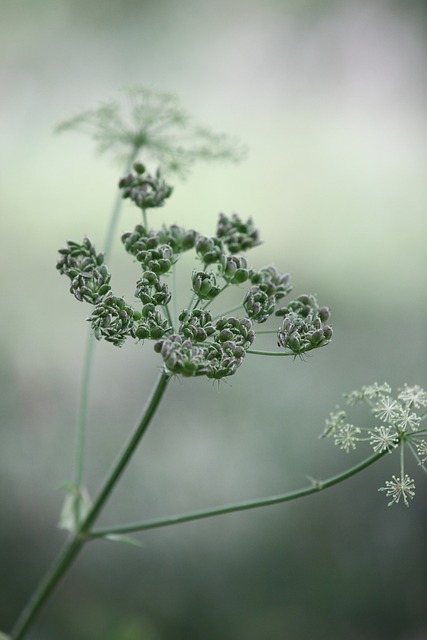
THCA flower extract, a non-psychoactive derivative of hemp and cannabis, is gaining recognition for its therapeutic properties without the mind-altering effects of THC. Rich in beneficial compounds like beta-caryophyllene, it's being studied for its anti-inflammatory, neuroprotective, and potential gastrointestinal benefits, particularly through its interaction with the endocannabinoid system. Users consume it in various forms, including tinctures and topicals, to manage conditions like chronic pain and inflammation, and to support overall wellness. The cultivation of THCA-rich cannabis flowers demands high-quality standards and sustainable practices to preserve the integrity of the compounds. Advanced extraction methods such as supercritical CO2 and ethanol are employed to produce pure and potent THCA extracts, ensuring consumers receive a full spectrum of cannabinoids and terpenes for maximum benefit. The focus on quality from farm to product is crucial for harnessing the full potential of THCA flower extract benefits, making it an increasingly popular choice in natural health remedies and therapeutic applications.
Discover the transformative potential of THCA flower extracts, a non-psychoactive cannabinoid acclaimed for its wide array of therapeutic properties. This article delves into the multifaceted world of THCA, offering insights from its scientific foundations to practical applications in wellness routines. We’ll explore how THCA flower extract benefits can be harnessed through responsible sourcing, advanced extraction methods, and the entourage effect with other cannabinoids. Navigate the legal considerations and future research directions for these extracts. Learn how to maintain their integrity for optimal health advantages, making “THCA flower extract benefits” a cornerstone of your natural health strategy. Join us on this enlightening journey into the realm of THCA.
- Unveiling the Potential of THCA Flower Extracts
- The Science Behind THCA: A Cannabinoid Primer
- Sourcing and Cultivation: The Journey of THCA Flowers
- Extraction Methods: Crafting High-Quality THCA Flower Extracts
Unveiling the Potential of THCA Flower Extracts
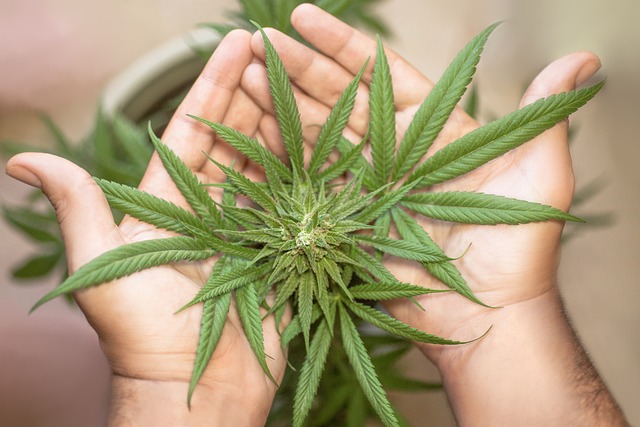
THCA flower extract, a natural compound found in hemp and cannabis plants, has garnered attention for its potential wellness benefits. Unlike its psychoactive counterpart THC, THCA is non-psychoactive, making it a preferred option for those seeking the therapeutic properties of cannabinoids without the mind-altering effects. Extracts from THCA flower are rich in this cannabinoid acid, which recent studies suggest may offer a range of health benefits including anti-inflammatory and neuroprotective effects. These extracts are often used in various wellness practices, from tinctures to topicals, providing relief for conditions such as chronic pain and inflammation without the drawbacks associated with THC consumption. The unique properties of THCA flower extract also indicate its potential to support the body’s endocannabinoid system, which regulates mood, appetite, sleep, and pain sensation, among other functions. As research continues to evolve, the benefits of THCA flower extract are becoming more apparent, offering a promising alternative in the realm of natural health remedies. Users report an array of positive experiences from using these extracts, highlighting their interest in this emerging field of cannabinoid science and its applications.
The Science Behind THCA: A Cannabinoid Primer
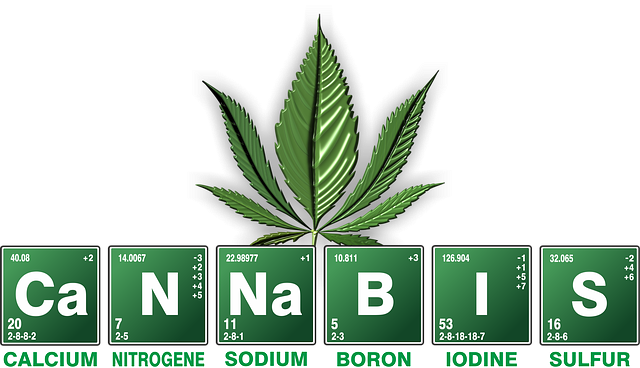
Betacaryophyllene, a phytocannabinoid found abundantly in THCA-rich cannabis flowers, interacts with CB2 receptors and may offer anti-inflammatory properties. Tetrahydrocannabinolic acid (THCA) is the non-psychoactive precursor to the well-known psychoactive compound tetrahydrocannabinol (THC). THCA flower extract benefits are being explored for their potential therapeutic effects, including pain and inflammation reduction. The human endocannabinoid system (ECS) plays a crucial role in regulating a range of physiological processes. THCA binds to both CB1 and CB2 receptors within the ECS, which may contribute to its reported health benefits. Studies suggest that THCA may exhibit neuroprotective effects, as it can modulate the release of neurotransmitters like glutamate and GABA, potentially aiding in neurodegenerative diseases. Additionally, THCA is being researched for its potential role in reducing nausea and stimulating appetite, which are beneficial for patients undergoing chemotherapy or those with eating disorders. The precise mechanisms by which THCA exerts its effects are still under investigation, but its interaction with the ECS and its anti-inflammatory, neuroprotective, and potential gastrointestinal benefits highlight the importance of this cannabinoid in the field of natural medicine.
Sourcing and Cultivation: The Journey of THCA Flowers
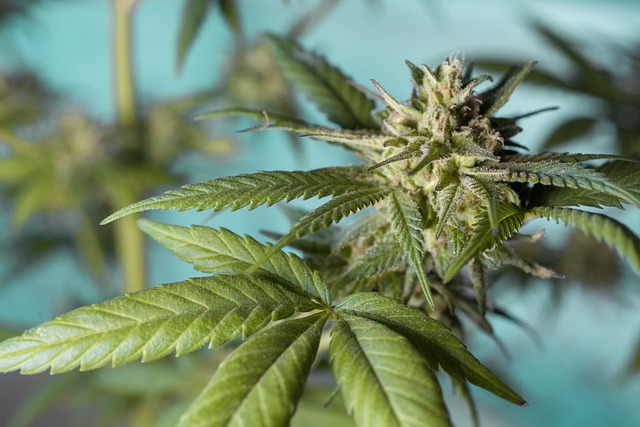
THCA flower extract has garnered attention within the cannabis community for its potential wellness benefits and therapeutic properties. Sourcing high-quality THCA flower extract begins with careful cultivation practices that prioritize the natural expression of the plant’s compounds, including tetrahydrocannabinolic acid (THCA), which is the raw, non-psychoactive precursor to THC. Skilled growers employ precise environmental controls, such as optimized lighting and temperature regulation, to cultivate these flowers under conditions that enhance their potency and purity. The soil quality, strain selection, and sustainable farming techniques all play pivotal roles in the journey of THCA flowers from seedling to mature plant ready for harvest. Once harvested, the flowers undergo a meticulous extraction process to preserve the beneficial cannabinoids and terpenes, ensuring that consumers receive an extract with the full spectrum of benefits that nature intended.
The cultivation journey of THCA flowers is a delicate dance between art and science, requiring expertise in horticulture and botany. The goal is to maintain the integrity of the plant’s compounds, which includes preserving the THCA in its raw form. This is crucial because THCA flower extract benefits are attributed to its non-psychoactive nature, allowing users to experience a wide range of potential effects without the psychotropic impact associated with THC. After the meticulous cultivation process, the extraction method is equally as important. Extractors use advanced techniques like supercritical CO2 extraction or ethanol extraction to ensure the highest concentration of THCA and other desirable cannabinoids and terpenes are captured without introducing contaminants or degrading the compounds. This commitment to quality from seed to extract ensures that consumers can reap the full potential of THCA flower extract’s benefits.
Extraction Methods: Crafting High-Quality THCA Flower Extracts
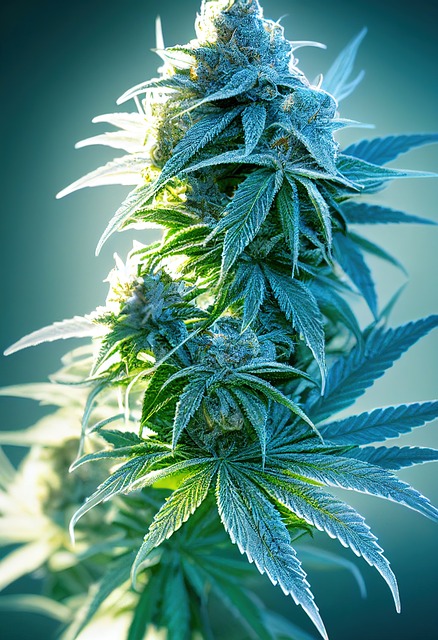
Extracting high-quality THCA flower extracts is a meticulous process that requires precision and care to preserve the beneficial properties of the plant. The THCA, or tetrahydrocannabinolic acid, is the raw form of THC found in the cannabis plant, which, upon decarboxylation, becomes THC, the psychoactive compound most are familiar with. The extraction methods for THCA flower extracts are varied and each offers unique advantages. One popular method is supercritical CO2 extraction, which utilizes pressurized carbon dioxide to selectively extract cannabinoids, terpenes, and other desirable compounds from the plant material without introducing solvents that could contaminate the final product. This method ensures a pure and potent THCA extract with minimal waste and environmental impact, making it a preferred choice for many producers in the industry.
Another technique gaining traction is ethanol extraction, which involves soaking the THCA flower in an alcohol solution. This method effectively dissolves the plant’s compounds due to the solvent properties of ethanol. After the extraction process, the solution is then evaporated, leaving behind a concentrated extract rich in THCA and other cannabinoids. The resulting product can be further refined through various filtration methods to enhance its quality and purity. Both supercritical CO2 and ethanol extraction methods are integral to producing high-quality THCA flower extracts that offer the potential benefits associated with this non-psychoactive cannabinoid, such as pain relief, anti-inflammatory properties, and mood enhancement, making them sought after in wellness and therapeutic applications.
THCA flower extracts have emerged as a subject of considerable interest within the cannabinoid community, offering a range of potential benefits that continue to be explored. This in-depth article has illuminated the multifaceted journey from cultivation to extraction, providing readers with a comprehensive understanding of the science behind THCA and the meticulous processes involved in crafting these valuable extracts. As we conclude, it’s evident that the potential of THCA flower extracts extends beyond their immediate applications, promising to open new horizons in natural wellness and complementary health strategies. The insights into sourcing and cultivation underscore the importance of quality standards, ensuring that users can benefit from the full spectrum of advantages these cannabinoids offer. In summary, the exploration of THCA flower extract benefits highlights a promising frontier in the realm of natural health products, one that merits continued research and thoughtful consideration by those interested in the therapeutic properties of cannabis compounds.







